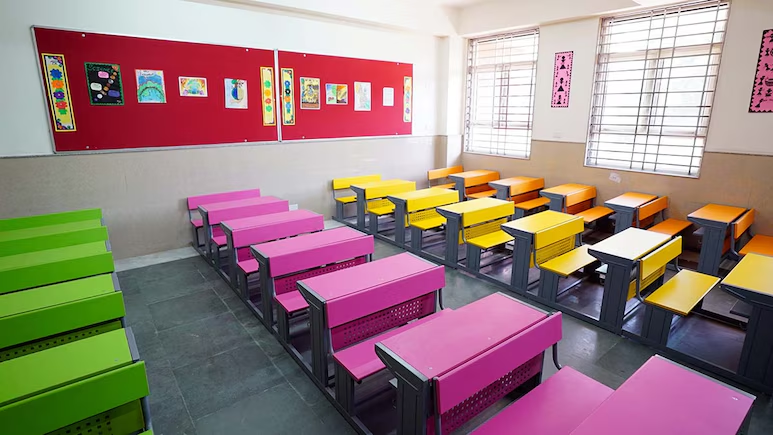
With the new National Education Policy, which was approved on July 29 by the Union Cabinet, India aims to achieve universal fundamental literacy and numeracy by 2025. For this, a National Mission on Foundational Literacy and Numeracy will be set up by the Ministry of Human Resource Development, or MHRD, which is set to be renamed the Ministry of Education (MoE).
Currently, over five crore Indian students in elementary school have not attained fundamental literacy and numeracy -- the ability to read basic text and the ability to carry out basic addition and subtraction with Indian numerals -- says the NEP document.
To achieve this, State and Union Territory Governments will prepare implementation plans, identifying stage-wise goals, and monitor the progress of the mission.
To achieve fundamental literacy and numeracy through the New Education Policy, or NEP 2020, the government plans to fill up teacher vacancies at the earliest, especially in the disadvantaged areas with large student-to-teacher ratios where the illiteracy rate is high.
NEP 2020: Preparing For School
“A pupil-teacher ratio (PTR) of under 30:1 will be ensured at the level of each school; areas having large numbers of socio-economically disadvantaged students will aim for a PTR of under 25:1,” an official statement said.
Special attention will be given to employ local teachers who are familiar with local languages. Teachers will be trained and supported with continuous professional development, in order to achieve the goal of fundamental literacy and numeracy.
“There will be an increased focus on foundational literacy and numeracy - and generally, on reading, writing, speaking, counting, arithmetic, and mathematical thinking - throughout the preparatory and middle school curriculum,” an official statement said.
“Interim 3-month play-based ‘school preparation module' for all Grade 1 students, consisting of activities and workbooks around the learning of alphabets, sounds, words, colours, shapes, and numbers, and involving collaborations with peers and parents, will be developed by NCERT and SCERTs,” the statement added.
NEP 2020: E-content
The government also plans a national repository of e-content on fundamental literacy and numeracy which will be made available on the Digital Infrastructure for Knowledge Sharing (DIKSHA). Technological interventions will serve as aids to bridge the language barrier in achieving this goal.
“Enjoyable and inspirational books for students at all levels will be developed, including through high-quality translation (technology-assisted as needed) in all local and Indian languages, and will be made available extensively in both school and local public libraries. Public and school libraries will be significantly expanded to build a culture of reading across the country,” an official statement said.
The government, with NEP 2020, aims for optimum learning by students. To ensure this, nutrition, mental and physical health of the students will be addressed through healthy meals and by introducing social workers, counsellors, and community involvement into the schooling system.
